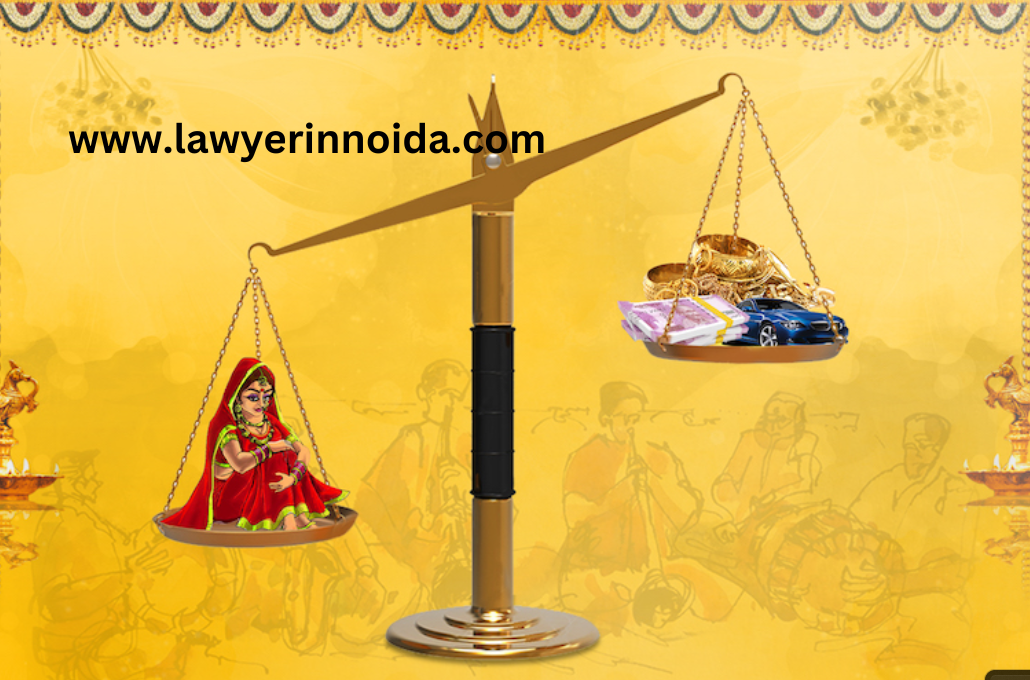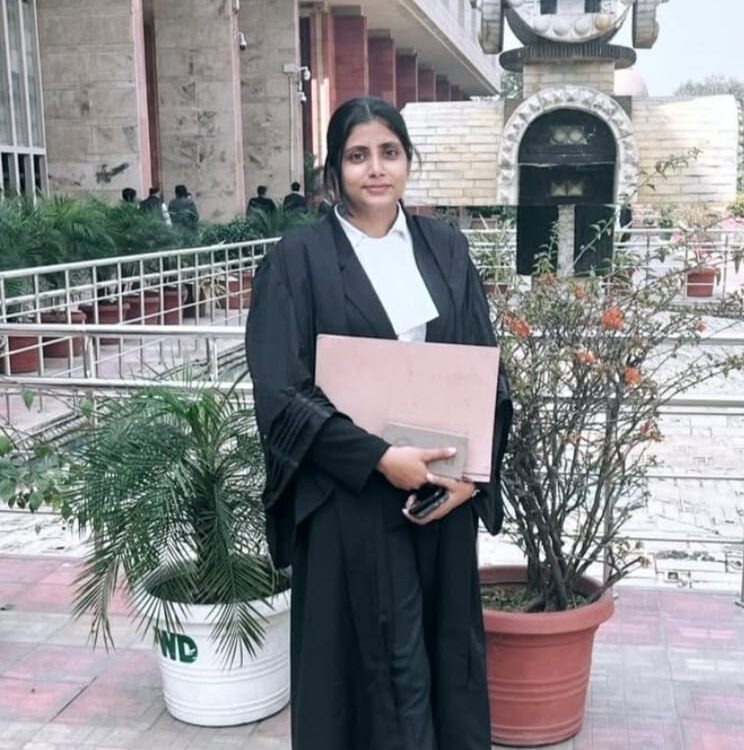
Stridhan Recovery in Noida Court
Stridhan, a term deeply rooted in ancient Indian traditions, refers to the wealth or property given to a woman during the course of her marriage. It includes gifts, jewelry, money, property, or any valuable assets that a woman receives either from her family or her husband’s family. The term "Stridhan" combines two Sanskrit words: “Stri” meaning woman, and “Dhan” meaning wealth or property. Stridhan is considered as the woman’s separate property, and the ownership, use, and control of this property rest entirely with her. The concept of Stridhan has historical and religious significance, with various texts, including the Manusmriti, recognizing a woman’s right to retain the wealth given to her during her marriage. It is a legal concept in modern law too, particularly under the Hindu Marriage Act, 1955, which affirms that Stridhan remains the absolute property of the woman, and she can claim ownership of it after marriage or in the event of its wrongful retention after separation or divorce.
Stridhan recovery in consumer disputes arises when a woman faces issues concerning the non-return, wrongful retention, or misappropriation of her Stridhan after the dissolution of her marriage or in the case of marital discord. The non-return of Stridhan often leads to legal disputes, especially in the case of separation, divorce, or domestic violence. The woman may be forced to seek legal recourse to recover her Stridhan if it is unlawfully kept by her husband or his family.In a broader sense, Stridhan is classified as the woman’s exclusive property under Indian Law, and consumer disputes related to Stridhan recovery become relevant when the woman’s property rights are not respected, and she is denied access to it. These legal disputes are commonly linked with the violation of a woman’s rights and wrongful withholding of the property, which affects her ability to retain control over her assets.
Legal Framework Governing Stridhan Recovery
- The Hindu Marriage Act, 1955: The Hindu Marriage Act clearly establishes that Stridhan is the absolute property of the woman and she holds exclusive rights over it. The law mandates that in case of divorce or separation, the woman is entitled to the return of her Stridhan, regardless of the duration of the marriage or any other factors. The Act recognizes Stridhan as an essential part of a woman’s wealth, and any attempt by the husband or his family to wrongfully possess it can be challenged legally. In case the Stridhan is not returned, the woman can approach the family court or civil court for recovery.
- The Dowry Prohibition Act, 1961: This Act prohibits the practice of dowry and criminalizes the demand for dowry in any form. However, Stridhan, though sometimes confused with dowry, is considered separately under the law. Stridhan is personal property gifted to the woman and does not constitute dowry, even though both involve gifts given during the marriage. The Dowry Prohibition Act strengthens the woman’s claim over Stridhan by recognizing that her property must be returned to her upon the dissolution of the marriage, either by legal separation, divorce, or domestic violence cases.
- The Indian Penal Code (IPC), Section 406: Section 406 of the Indian Penal Code criminalizes the offense of criminal breach of trust. When Stridhan is unlawfully withheld by the husband or in-laws, it amounts to a breach of trust, and the woman has the legal right to file a complaint under this section. Section 406 provides that if any person has dishonestly misappropriated the Stridhan or refuses to return it despite repeated requests, they can be charged with criminal breach of trust, which could lead to imprisonment or fines.
- The Consumer Protection Act, 2019: The Consumer Protection Act deals with unfair trade practices and consumer rights in general. In the case of Stridhan recovery, if there is a consumer relationship (for example, in cases where goods or services are promised and later withheld or misused), the woman can approach the Consumer Forum for assistance. If Stridhan is not returned as part of an agreement, or if any related service (like marriage assistance) is found to be misleading or fraudulent, the woman can file a case in the Consumer Court to recover her rightful assets. The Act offers a means to resolve these types of consumer disputes and ensures the protection of a woman’s legal rights in such matters.
- The Protection of Women from Domestic Violence Act, 2005: One of the most crucial provisions for Stridhan recovery is found in the Protection of Women from Domestic Violence Act (PWDVA). The Act specifically addresses the issue of a woman’s personal property, including Stridhan, and offers her protection in case of domestic abuse. Under this Act, a woman can seek a court order for the return of her Stridhan, and the court is bound to ensure that the woman receives her property. The PWDVA also protects against physical, emotional, and financial abuse, providing a broad legal framework for Stridhan recovery in case of domestic violence.
- Family Courts Act, 1984: The Family Courts Act was established to provide a forum for speedy and effective resolution of family disputes, including those related to Stridhan. The Family Court is a specialized forum that is well-equipped to handle cases of divorce, separation, and property disputes, including Stridhan recovery. Women can file petitions in family courts to claim their Stridhan, and the court will order the return of the property, if valid claims are made. This forum provides a quicker and less formal process than the regular courts, ensuring that the woman’s property rights are upheld.
Steps for Stridhan Recovery in Consumer Disputes
- Step 1: Documenting the Stridhan
- Step 2: Filing a Police Complaint (Criminal Breach of Trust)
- Step 3: Filing a Civil Suit for Recovery of Stridhan
- Step 4: Seeking Relief Under the Domestic Violence Act
- Step 5: Seeking Relief Under Consumer Protection Act
- Step 6: Approaching the Family Court
- Step 7: Mediation and Negotiation
The first step in the recovery process is documenting all forms of Stridhan. This includes maintaining receipts, photographs, or any records that establish ownership. Jewelry, property, and even money gifted to the woman during the marriage can be considered Stridhan. Having witnesses who can testify to the gifts received also strengthens the woman’s claim to the property. Keeping track of the dates and the person who gave the Stridhan is crucial in proving ownership in court.
If the Stridhan has been wrongfully retained or misused, the woman can file a criminal complaint under Section 406 of the IPC. This section pertains to criminal breach of trust and applies to cases where the husband or his family refuses to return Stridhan after the dissolution of the marriage. The police will investigate the case, and if the accused is found guilty, they could face criminal charges, including imprisonment and fines.
A woman has the right to file a civil suit in the family court or district civil court if the Stridhan is not returned. The woman must prove that the property was indeed given to her during her marriage, and that it rightfully belongs to her. The civil court will issue an order for the return of the Stridhan, and failure to comply with the order may result in further legal consequences, including contempt of court charges.
In cases of domestic violence, the Protection of Women from Domestic Violence Act, 2005 provides a legal mechanism for recovering Stridhan. Women facing domestic abuse can file an application under the Act, and the court may order the immediate return of Stridhan. Additionally, the woman can seek other forms of relief under this Act, such as protection orders, compensation, and maintenance.
In some cases, disputes over Stridhan may be associated with unfair trade practices or misappropriation of goods and services. Women can file a complaint in the Consumer Court under the Consumer Protection Act if they feel they have been misled or wronged in relation to their Stridhan. The Consumer Forum may order restitution and return of the property as part of its judgment, and the woman can receive compensation for her losses.
For women going through a divorce or separation, the Family Court provides an essential avenue for resolving disputes related to Stridhan. During the divorce proceedings, the court can issue an order for the return of Stridhan as part of the settlement process. If the woman is unable to recover her property through other means, family courts are equipped to handle such cases efficiently.
Before resorting to formal legal proceedings, many couples prefer to attempt mediation or negotiation. A mediator can help both parties come to an agreement outside of court. In mediation, the Stridhan may be returned without the need for a lengthy and expensive court trial. This alternative dispute resolution method can save time, money, and emotional stress for the woman.

Legal Precedents in Stridhan Recovery Cases
- D. Velusamy v. D. Patchaiammal (2010): The Supreme Court in this case reinforced the right of women to retain ownership of their Stridhan and ordered its return in the event of marital disputes. The court emphasized that Stridhan cannot be claimed by the husband or his family, and it must be returned to the woman during divorce or separation.
- K. K. Verma v. Union of India (2011): The Delhi High Court upheld the right of women to possess their Stridhan and ruled that it is a consumer dispute under the Consumer Protection Act. Women facing issues with Stridhan recovery can approach consumer courts for resolution.
- S. R. Batra v. Smt. Taruna Batra (2007): In this case, the Delhi High Court ruled that Stridhan is the woman’s personal property and that the husband and his family cannot claim any rights over it. The court ordered the immediate return of the woman’s Stridhan.
Conclusion
The recovery of Stridhan in consumer disputes is a crucial legal matter that involves multiple laws and legal avenues to safeguard a woman’s property rights. Women facing such disputes must understand their rights under the Hindu Marriage Act, Dowry Prohibition Act, Indian Penal Code, and other relevant laws. Through legal mechanisms such as civil suits, criminal complaints, and family court interventions, a woman can assert her ownership over her Stridhan and seek its rightful return. If you are facing Stridhan-related disputes, it is essential to consult with a qualified lawyer who can help navigate the legal process and ensure that your property rights are protected.



